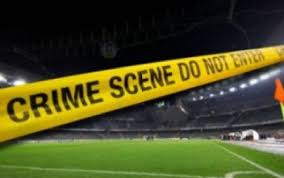April 4 – The four English clubs – three of them in the Premier League – named in the athlete doping allegations at the weekend have all issued statements denying the claims.
No players have been named in the allegations, made in the Sunday Times newspaper which secretly filmed Dr Mark Boniya, then working at the Omniya clinic in London, saying that he had prescribed EPO, steroids and growth hormones to athletes to treat injuries.
The clubs deny his claims, while Boniya says that the report was “false and misleading”.
A Chelsea described the allegations as “false and entirely without foundation”, saying the “club has never used the services of Dr Bonar and has no knowledge or record of any of our players having been treated by him or using his services.”
An Arsenal statement is similarly dismissive saying: “Arsenal Football Club is extremely disappointed by the publication of these false claims which are without foundation. The Sunday Times knows that these allegations are baseless but has preferred to publish regardless.”
Leicester City made a similar statement sayng: “We are extremely disappointed that The Sunday Times has published unsubstantiated allegations referring to players from clubs including Leicester City when, on its own admission, it has insufficient evidence to support the claims.”
All clubs said they take the issue of performance enhancing drugs very seriously and educate their players accordingly and comply with all the rules. Between April and December 2015 there were 1,583 tests in English football with no positive results. A UEFA study last year found 7.7% of players in a sample of 879 had high testosterone levels, although UEFA said the figures “didn’t present evidence of potential doping”.
Nicole Sapstead, head of the UK anti-doping agency (Ukad), said in an interview with the BBC earlier this year: “When you’re looking at a sport like football that commands the sort of salaries that the players can command, its fanbase, its ticket sales, its broadcasting rights – if that isn’t a risk then I don’t know what is, notwithstanding the physical demands of the sport itself,” she said.
“Add that into a nice big mix and you’ve got everything pointing to a doping issue.”
The FA criticised Sapstead’s comments at the time. It’s statement regarding the claims this time says: “These are very serious allegations. As such, The FA welcomes UK Anti-Doping’s decision to immediately launch an independent review into the matters raised by the Sunday Times.
“The FA is fully committed to maintaining the integrity of English football and will work with Ukad and other relevant agencies in seeking to do so. The FA urges anyone with information that may be relevant to come forward as soon as possible.”
Britain’s sports minister John Whittingdale warned of government sanctions if the investigation finds that players have been doping.
“I have asked for there to be an urgent independent investigation into what action was taken when these allegations were first received and what more needs to be done to ensure that British sport remains clean.
“The government is already looking at whether existing legislation in this area goes far enough… If it becomes clear that stronger criminal sanctions are needed then we will not hesitate to act.” The drugs prescribed would not be illegal under common law.
Contact the writer of this story at moc.l1714649226labto1714649226ofdlr1714649226owedi1714649226sni@n1714649226osloh1714649226cin.l1714649226uap1714649226

